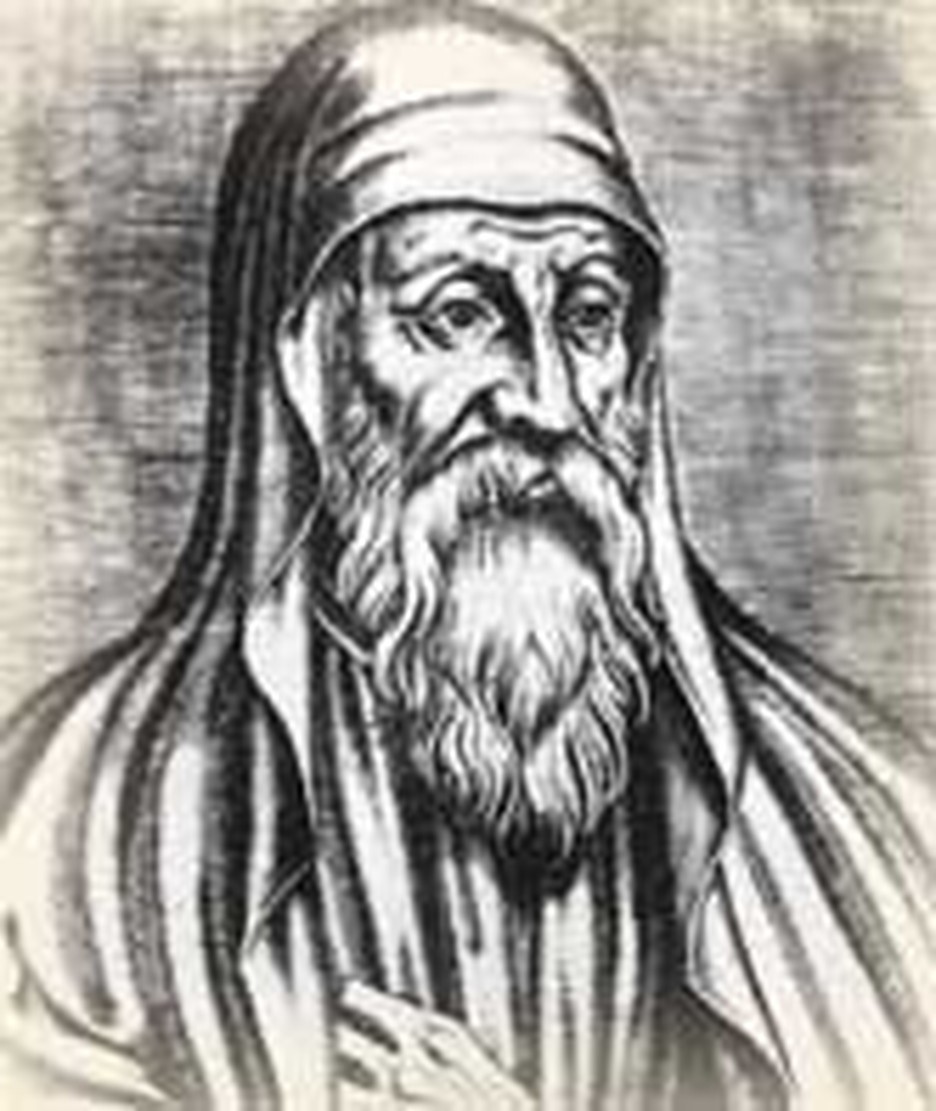
We have seen how God raised up extraordinary people to lead his people through the tumultuous uncharted waters of the Church's early centuries. Origen was another of these colossal heroes. Have you ever met someone who loved Christ so much that as a teenager he was ready to voluntarily die for the faith? Or so brilliant that he kept seven secretaries busy recording the torrent of wisdom that gushed from his hyperactive mind? Or one so eager to walk close to the Lord that he fasted every Wednesday and Friday? Origen was a man of rare brilliance and was probably the most prolific author of the ancient world, writing literally thousands of works.
Mama Hid His Clothes
Born in Alexandria, Egypt about 185, Origen was reared in a Christian
home. His father, Leonides, was a teacher who recognized his son's brilliance
and provided him with the best Greek education possible. He also had Origen
memorize Scripture every day; even as a boy Origen knew whole sections
of the Bible from memory. When Leonides was imprisoned for his faith about
202, under the reign of Septimius Severus, Origen wrote his dad a letter
of encouragement not to deny Christ. Origen was eager to join his father
in prison and death if necessary; he was prevented only by his mother
hiding his clothes when he wanted to give himself up to the heathen authorities.
Leonides was martyred; his property was confiscated; and his wife was
left helpless with seven children.
Teenage Teacher and President
A wealthy matron assisted Origen, and he began giving instruction in the
Greek language and copying manuscripts. When he was 18, in 203, bishop
Demetrius of Alexandria nominated Origen to become president of the catechetical
school of Alexandria. There Origen was responsible for the instruction
of all new converts to the faith. As he instructed new converts, Origen
learned he had to counter arguments of heretics within the faith as well
as Jews and pagans without. He studied with the leading neo-platonist
philosopher of his day to better refute pagan arguments against the Christian
faith.
Following the Narrow Way
Origen led a very disciplined life and devoted himself solely to the service
of the gospel. Strictly following Jesus' admonition in Matthew 10:10,
he had only one coat, no shoes, and took no thought for the next day.
He refused any gifts or pay from his pupils, ate no meat, drank no wine,
and slept on the bare floor. Most of the night he spent in prayer and
study.Many of his friends and pupils were persecuted or martyred and Origen
visited them in prison and showed them many kindnesses.
Though he was well schooled in Greek education and philosophy and may well have been the greatest scholar of his age, Origen recognized that a totally rational explanation of the Christian faith was impossible. Christians could grow spiritually only by meditating on the Scriptures; it was to the study and teaching of the Scripture that Origen devoted his life. During his early years at Alexandria, Origen wrote On First Principles, the first systematic theology ever written. For twenty-eight years he worked on his Hexapla, a massive work of Old Testament textual analysis. Origen was one of the few churchmen before the Reformation who learned Hebrew to better study the Old Testament. His Hexapla was a parallel edition of the Hebrew text of the Old Testament with a transliteration and four different translations into Greek. Origen's efforts made the church aware that the transmission and translation of the text of sacred Scripture should be carefully watched and controlled.
Origen's method of interpreting Scripture tremendously influenced the Middle Ages. He interpreted Scripture with three levels of meaning: the literal, the moral and the allegorical. Origen especially used his allegorical interpretation of Scripture to reveal Christ in the Old Testament.
Condemned and Excommunicated
Origen paradoxically has been called the father of orthodoxy and the father
of heresy. He labored at a time when the church was still seeking to interpret
and define its basic doctrines. Origen made foundational contributions
that would help theologians for centuries. His ceaselessly fertile and
active mind also led him into uncharted areas and some speculations that
the wisdom of the larger Church had to reject. Bishop Demetrius of Alexandria
charged Origen with foreign speculations. Two church councils held in
231 and 232 enacted motions against Origen, and he was excommunicated.
Origen found refuge and acceptance with churches in Palestine and Arabia until his pupil Dionysius became bishop of Alexandria. During the Decian persecution, Origen was cast into prison, tortured, and condemned to the stake. The death of the emperor prevented his execution, but Origen's health was broken. He died at the age of 69 in 253 or 254.
Though he made some mistakes, his contribution was inestimatable. Origen's student, the great church father Gregory of Nazianzus, aptly summed him up as the stone that sharpens us all.
Ill-advised zeal |
.jpg)

.jpg)
